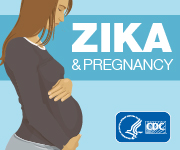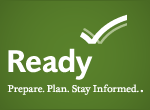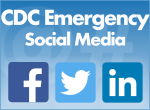Why Listening is Crucial to Communicating

While it’s important to share information as quickly as possible during an emergency, it’s important to get information affecting your target audience as well. Understanding a community’s specific needs can help you tailor public health recommendations to make them easier to access, understand, and follow. Time is precious during a disaster, but taking the time to listen to people affected by a crisis is crucial for effective communication.
The right message at the right time from the right person can save lives. However, that message may need to come in different formats through different channels to reach everyone affected by a public health emergency. Listening to communities in crisis can tell you:
- What concerns are most upsetting
- What questions need to be answered
- Which messages need more explanation
- Which public health recommendations are not working
Changing your messages based on community input may increase the number of people who are able to take your suggestions, change their behaviors, and avoid future risks to their health and well-being.
During a disaster, the public often tells you—directly or indirectly—exactly what information they want to hear from you. Below are a few ways you can hear what they’re saying.
- Media monitoring: Both traditional and social media may indicate what the public is thinking. Media monitoring can reveal rumors and public reactions worth addressing.
- Helplines: Helplines can expose information patterns and gaps. This awareness can help you improve messaging and outreach efforts.
- Town Hall Meetings: Meeting with community members in person can be extremely informative. These forums can uncover how messages are being received and interpreted. They can also support open channels of communication.
The best time to start understanding what a community needs is before a crisis ever occurs. Building relationships with community representatives will allow you to assess and meet people’s needs quickly. Listening to early input from communities can help you manage information before rumors become an issue.
For more resources and information on CERC, please see Crisis and Emergency Risk Communication, 2014 Edition or Crisis and Emergency Risk Communication Pandemic Influenza, 2007.
Have you used CERC in your work? To share your CERC stories, e-mail cercrequest@cdc.gov. Your stories may appear in future CERC Corners.
- Page last reviewed: March 24, 2017
- Page last updated: March 24, 2017
- Content source:
- Maintained By:





 ShareCompartir
ShareCompartir